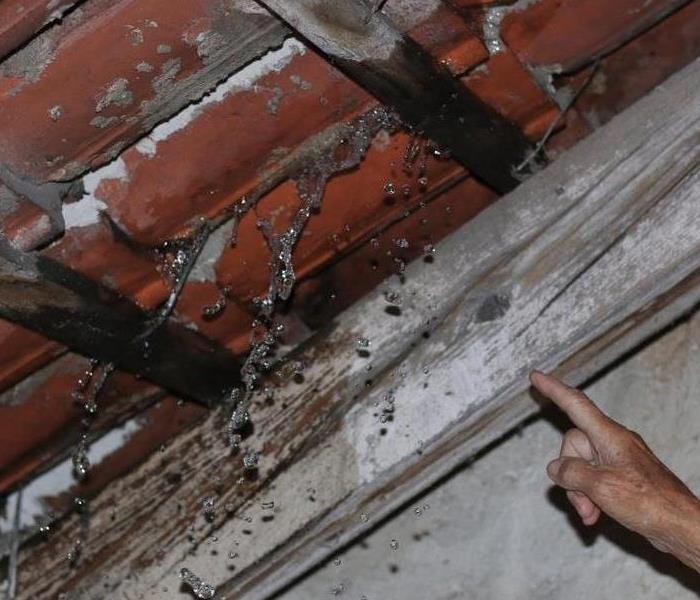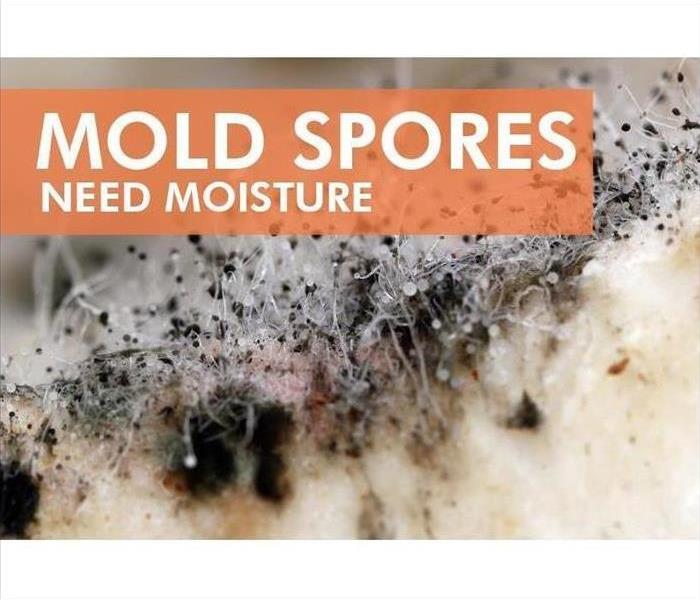7 FAQ About Mold
2/14/2023 (Permalink)
The term mold is something that most people have heard before. However, not many actually know much about mold and mold damage. In this article, our SERVPRO of Woodbury, Cottage Grove team will answer some of the most frequently asked questions we receive about mold.
What is mold?
Mold is classified as a type of fungi that grows on living or decaying organic matter. The class of fungi is comprised of more than 100,000 individual species and includes some of the most common molds found in homes today. These small organisms can reproduce through tiny spores that are produced by their hyphae (think: root-like strands). These spores help disperse the mold to new areas where it can grow and flourish.
Mold spores are everywhere—in your house, on your clothes and pets; even in your food. They're everywhere!
Where does mold grow?
Mold grows best in damp areas or rooms that have high humidity, so you'll likely find it in your bathroom (especially the shower) and kitchen. If you have an unfinished basement, that's another place to watch out for mold. It's also common to see mold infestations appear after your property suffers from a water damage event.
How can I tell if I have a mold problem?
It’s important to know the signs of mold and moisture damage to prevent further problems. If you notice any of the following symptoms, you may have a mold problem:
- A musty odor in your home or workplace
- Water stains or black spots on walls, floors, or ceilings
- Mold growth on food
- Spots on clothes
- Warped flooring or walls
Why is mold growing in my home?
There are many reasons why mold can grow in your home. When there is a source of moisture present, molds begin to thrive and multiply. Mold spores float through the air and land on a damp surface where they will grow into colonies that can cause significant damage.
What does mold smell like?
Mold can emit an odor that resembles mushrooms when it is growing on dead organic matter such as wood or leaves. It can also smell like mildew, dampness, or dirt. Some molds produce spores that have no odor, but when they are present in large quantities they can be detected by their distinctive smell.
Does insurance cover mold damage and/or remediation?
Yes, insurance companies will likely cover mold damage caused by a water damage event. However, if the home was not properly maintained and the cause of the mold problem was negligence on your part, then your insurance company may not cover it.
Should I have the mold removed by a professional or clean it myself?
If you have a large amount of mold growing on the structure of your home such as the walls, ceilings, or other hard-to-reach areas, a professional should be called to remove it.
If the mold is not very extensive and can be removed by an individual with some basic cleaning skills, then removing it yourself may be a good choice. However, if you have any doubts about your ability to do this, hiring a professional is best.
Mold is something that can affect anyone, so it’s important to know how to prevent and handle it. We hope this article has helped you to better understand the different kinds of mold and what they mean for your home. If you think that you might have a mold problem in your home or workplace, contact us today! We offer residential and commercial mold remediation and repair services.

 24/7 Emergency Service
24/7 Emergency Service

